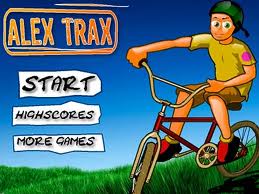I don’t get all this resting during the season by the Pro riders. It seems to be standard operating procedure no matter whether you are a classic or stage race rider. What is really weird is most of them are taking over a month off when the season is hardly 2 months old.
I think Lance set the precedent for racing the least amount of days in a year the last couple times he won the Tour. Contador didn’t race until Paris-Nice after he won the Tour one year. That is close to 8 months. Carlos Sastre took off more than that time one year.
But all these guys disappearing mid to late April until mid May or June seems really strange to me. The race schedule is so diluted nowadays because the Pro Tour teams have 28 guys that it’s not like these guys are over raced already.
And then when the return, they are all over the map with predictions how they’ll be riding after all the time off. That was the case in the Tour of California. Tom Boonen, when he returned to competition in the Tour of California after Paris-Robuaix, said he hadn’t raced enough to have good form. But no one told that to Peter Sagan or Vincenzo Nibali who both took off nearly as long. I believe they raced a week later at Amstel Gold, but we “off” for the best part of a month. And Sagan is undefeated so far in the Tour of California.
Then have Wiggins who raced in Romandie and then not racing all of May and planning to come back for the Dauphine in June. I can’t imagine not being flat after that much time of not racing.
Obviously I have no ability to investigate the issue. But to me it seems pretty weird. It is only a recent thing. I guess I started noticing it 7-10 or so years ago. Now all the guys are doing it. I don’t know the “proper number” of race days that a guy should do. I used to race over a 100 race days in a season pretty consistently. That was with at least two or 3 two week stage races. But for some guys now, the number of race days now are ridiculously low.
It seems so strange that these guys can not race for months upon months and come back at the same speed and strength as they were before. Contador did it that year after the Tour. Valverde sat out for his wrist slapping and then came back at full speed, winning the hardest stage of the Tour Down Under and finishing 2nd overall. I find it nearly impossible that you don’t race for the best part of 2 years and can come back at nearly the same level as you left.
Well, I don’t have any viable answers. Maybe someone out there does?






Power meters and a better understanding of physiology.
The last 10 years has seen a dramatic increase in the knowledge base of training for sport. The power meter gives riders a better way to quantify their efforts than ever before.
That, along with the flexibility from team management for a rider to target very specific races, allows them to train, “race-train,” and then peak for the goal event.
With a power meter, or even strava for that matter, you don’t need to race to develop speed and power.
And then there’s doping of course. The way it seems to work now is the rider stays off the circuit and takes the PED’s at non-positive levels for fear of a tester showing up. Maybe heading off to Tenerife to discourage surprise testing and get first-class preparation from Ferrari.
What makes EPO and the like so great is that the benefits last for weeks after the doping cycle. As in, “never tested positive.”
It’s the same story with race horses. Maybe competitors should train up to one race in their career.
It’s all about doping and blood. Sorry but you cannot use Strava or a power meter to replicate the last hour of a 4 hour RR!
I think anyone who is paying attention knows the answer. The not-racing-much situation results from having blood drawn for later use and using stuff like clenbuterol to reach the goal weight. With the tank down, you take some time off to replenish and do Alpine Col Reconnaisance training or something. You can start racing again when the blood volume is normal.
“With a power meter, or even strava for that matter, you don’t need to race to develop speed and power”…
I’m sorry but there are a thousand other things that make up being a good bike racer other than staring at the dashboard on your handlebars. I think Steve may have touched on this before.
The worlds best rider last year hardly ever uses even a heart rate monitor. Trains mostly by feel. The new stuff is fun but it doesn’t turn a donkey into a race hoarse. I would bet it’s mostly a drug thing why they disappear for a while.
Guys,
I am not going to argue on the internet, because arguing on the internet is silly. I will elaborate and clarify my previous post to clear up any potential miscommunication.
Tudor Bompa introduced the world to Periodization for Sport in the early 60’s. This method of gradually increasing training loads and then allowing for recovery periods revolutionized modern sport and has been refined and adapted ever since. Periodization is now the basis for any well founded strength or endurance training program.
Power Meters were introduced to cyclists in the late 80’s and really became accepted in the mid 90’s. Power meters gave cyclists a much more precise way to quantify their total workload than ever before.
The inevitable result of athletes adopting more precise science-based training is fewer days racing than what was previously held as the norm.
These are facts, not opinion.
My opinion is that the combination of science, technology, and management acceptance has led to fewer days of racing.
I am not ignoring that doping exists or that doping is another potential answer for the fewer days raced. It is simply my belief that science and technology are the main drivers for this change.
I am also not asserting that the power meter is a cure-all or substitute for the “feel” and art of training. It is simply a tool, and the best tool, that cyclists have for precisely quantifying their workload.
Have to agree with several sides posted above. Yes the timing for doping is very suspicious and sadly we have to think about that foremost.
However, power meters do make a serious impact. Talking about this/that skill/racer etc…that may matter at the amateur level but your talking about Boonen and Contador here, I mean seriously? You think they need to hone their skills on the bike, they are professionals, and winners already.
Yes you can exactly replicate a 4h road race and the finish with a power meter, this is the beauty of it. You can identify your strengths and weakness, and work on both. Heart rate monitors? Its an interesting aside, but means nothing in the grand scheme of things. Also it allows one to predict when they are going to be “on form” and each individual athletes optimal pre race load and freshness, as well as the metrics that imply when they will do well. Ppl talk all kinds of stuff about feel, yet nearly all have power meters, and someone is following the numbers.
Use whatever metrics and power-meters you like, but doping dictates their race schedule and vice-versa.
Several points, first, these guys are _already_ pro so I don’t think they really need to work on their bike handling. That was never an issue for me after a long break from racing. Second, power metrics do play a major role in tuning fitness to a degree you could not 15 years ago and I think that historically riders are over-raced. Third, I know that for myself there is a huge psychological advantage to preparing exclusively for a single event and for me tapering off the racing made me really want to race when the time came. Not everyone is motivated the same way. Steve is motivated to race all the time, its just part of his nature, but not everyone performs the same under those conditions. Also, if everyone was racing a lot more 10 years ago, it could mean that there was an un-natural amount of days raced because there were more riders on drugs, so actually lower race days may be correlative with a cleaner field. Just throwing that one out there for counterpoint. Finally, I dont think it takes a lot at that level to get that race benefit once you need it, doing Dauphine before the tour might just be enough (and not too much) to tune your leg speed. I’m not discounting the possibility of blood withdraws and the like but I actually think there are a lot of valid reasons as well.
Yes – that is why I have taken the last 2 years off. To win the “Skidmark Missouri” Criterium. My training will be documented in my book – “Winning one bike race – tapering via muscle car restoration, playing the banjo and generally ignoring the bicycle”
Next year will be hell on the peleton.
all good points in deed..i would agree the power meter and such have made life alot easier. and being mentally sharp and fresh is huge factor with a long season.